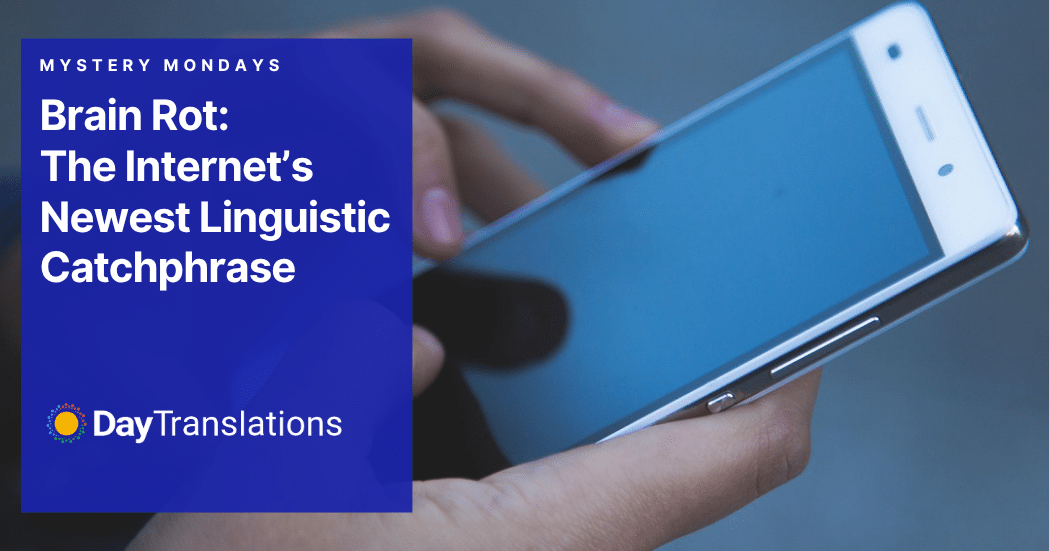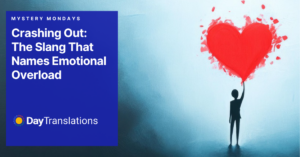Spend enough time doom-scrolling social media, and you’ll probably hear people joke about feeling “brain rot.” That’s because this isn’t just a mood, it’s become a bona fide word.
“Brain rot” has officially joined the Oxford English Dictionary as of June 2025, meaning it’s now part of the language we share and search. But what does it really mean? Where did it come from? And why is it suddenly everywhere?
Let’s dive into this week’s Mystery Mondays word.
A Phrase with History and Relevance
Though it sounds new, brain rot actually dates back to 1854, when Henry David Thoreau used it in Walden to express how shallow thinking could rot the mind over time. But proof that language is alive comes when old words find new life. With phrases like this, internet style.
Over the past year, “brain rot” exploded online, especially among teens and Gen Z, who used it to describe the mental fog after bingeing on mindless content. Last year alone saw usage jump over 230 %, landing it as the Oxford Word of the Year 2024
Why the Surge?
These days, we’re surrounded by content overload, from viral trends to endless news cycles. “Brain rot” captures the peculiar sensation when your attention turns to mush: the déjà vu of scrolling through the same memes, the shallow dopamine hits, and the loss of focus.
It holds emotional weight. Try saying it: brain (thinking), plus rot (decay). It’s both playful and piercing, a perfect blend for digital life.
Not Real Rot – But a Real Warning
Neuroscientists caution that there’s no actual decay in your brain. But that mental dullness? It’s real enough to matter. Surveys find that students reporting “brain rot” symptoms spend as much as 25 years of their lives online
Interestingly, kids openly talk about it: The UK’s Ofcom 2025 report quoted teens describing the content they consume as giving them “brain rot”.
The Power of a Word
Why does “brain rot” resonate so much?
- It’s evocative. Two short words that paint a stronger picture than hours of doomscrolling.
- It’s relatable. Everyone’s felt the slowing of thought after bingeing on some pointless scroll-fest.
- It’s communal. Using the word creates shared awareness and maybe helps push back against screen fatigue.
Language Evolves with Us
“Brain rot” is the perfect example of how language meets life. Old words can get rejuvenated when culture shifts. That’s how evolving vocabulary works; sometimes it grows old, then springs back with fresh meaning.
We’ve seen this before with rizz, goblin mode, and now brain rot. Language remains a living creature, adapting as our realities change.
Final Thoughts
Next time your brain feels like it’s fuzzing out, you have a newly minted word to describe it. And when you use brain rot, you’re not just name-dropping a slang phrase, you’re part of a linguistic movement.
Language isn’t just for desks and dictionaries anymore. It’s alive, scrolling beside you, changing as you scroll.












Sorry, the comment form is closed at this time.